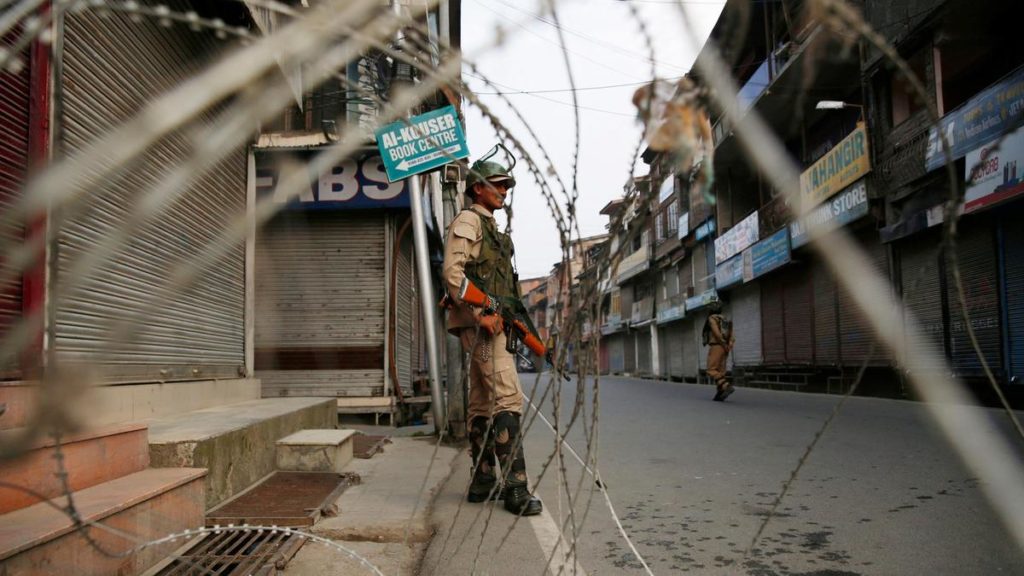In Nobel laureate Kazuo Ishiguro’s 2015 novel The Buried Giant, an elderly couple set off to look for their long-lost son, of whom they have only fleeting, faint memories. The story is set in sixth-century Britain. The Saxons have arrived, King Arthur is dead and an uneasy peace exists between the Britons and Saxons. The elderly parents’ search is complicated by the fact that they suffer from partial amnesia, something that afflicts everyone around them as well. Ishiguro writes: “For in this community the past was rarely discussed. I do not mean that it was taboo. I mean that it had somehow faded into a mist as dense as that which hung over the marshes. It simply did not occur to these villagers to think about the past — even the recent one.”
It is not too fanciful to think of tomorrow’s Kashmir as a place similarly wreathed in mist and forgetfulness. It is mountainous, troubled and attempts are under way to smother its story, its sensibilities and its very sense of itself. On August 5, Indian Prime Minister Narendra Modi’s government unilaterally revoked the special constitutional status and limited autonomy enjoyed by the Indian part of Kashmir. The region has since became a shadowy entity on the world stage — we know it still exists but not what’s happening there right now. We don’t even know what’s not happening there. There has been little news footage and commentary from Kashmir in the past two months and what exists isn’t contemporaneous. When an earthquake measuring 5.6 on the Richter scale rocked parts of Pakistan-administered Kashmir on September 24, the families and friends of those on the Indian side were unable even to make contact and find out if they were safe. It is still hard to find out what ordinary Kashmiris have to say while their politicians have simply vanished.
Late last week, Kashmir briefly reappeared before the world, but only as a matter worthy of scrutiny. The issue was raised at the UN General Assembly (UNGA) by Pakistani Prime Minister Imran Khan. His Indian counterpart, however, didn’t mention the territory at all. China, Turkey and Malaysia also dwelt upon Kashmir. A protest was organised in New York and another in London. Other than that, Kashmir — the place and its people — remains obscured by a deep impenetrable fog. An officially sponsored mist has conquered Kashmir, subsuming its eight million people. At one point in Ishiguro’s story, the elderly father wonders: “ Had they always lived like this, just the two of them, at the periphery of the community?” It’s a question all Kashmiris might well be asking.
In the eight weeks since the Indian government made its decision on Kashmir — changing its political status and imposing a near communications blackout on the valley — phone and internet connectivity has been drastically curtailed and a supposedly partial curfew remains in force. Senior Indian officials continue to say that everything is normal in Kashmir. On Sunday, India’s home minister Amit Shah rejected talk of restrictions on Kashmir. “Where are the restrictions?” he demanded. “It is only in your mind. There are no restrictions. Only misinformation about restrictions is being spread.” He added that “people are trying to create a hue and cry over lack of mobile connections for a few days. Lack of phone connection is not a human rights violation.”
Mr Shah’s position is consistent with the way the Indian government has handled the Kashmir situation in the past couple of months. It claims it is pressing ahead with a clear agenda — the “dawn of development” — in a state that has missed out on India’s economic success. It has brooked no dissent and answered few questions about the propriety and ethics of its actions in the region. And it has exulted in the cheers of many Indians, who are elated by what they regard as a decisive move to end decades of mutiny in Kashmir.
Internationally, it is fair to acknowledge that Kashmir has evoked only tepid interest. That was obvious at UNGA. In fact, Mr Modi’s ebullient pre-UNGA rally in Houston, Texas, alongside Donald Trump, was seen as the American administration’s affirmation of India’s hard line on Kashmir. The only limited caveats about Mr Modi’s approach to Kashmir came in a low-profile media briefing at the US state department. Last Saturday Alice Wells, the acting assistant secretary in the bureau of South and Central Asian Affairs, noted that “the United States is concerned by widespread detentions, including those of politicians and business leaders, and the restrictions on the residents of Jammu and Kashmir. We look forward to the Indian government’s resumption of political engagement with local leaders and the scheduling of the promised elections at the earliest opportunity. As [Mr Trump] emphasised, [Mr] Modi made a commitment that the recent changes to the status of Kashmir will improve the lives of the Kashmiri people, and we look to him to uphold this promise.”
But that is boilerplate terminology. And it is worth noting that message was not delivered by Mr Trump or even his secretary of state, Mike Pompeo.
What is astonishing is the extent to which Kashmir seems to face a fait accompli, at least so far. It is scarcely believable in this networked age that an entire region can be made to simply disappear from view. But in most parts of the world, there is little appetite to challenge India, an economic powerhouse and multicultural democracy.
Audacity wins — until it doesn’t.


